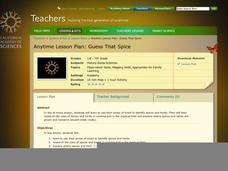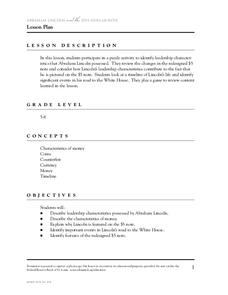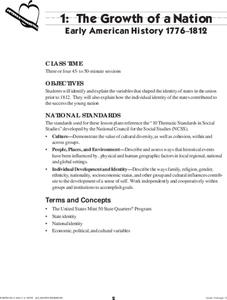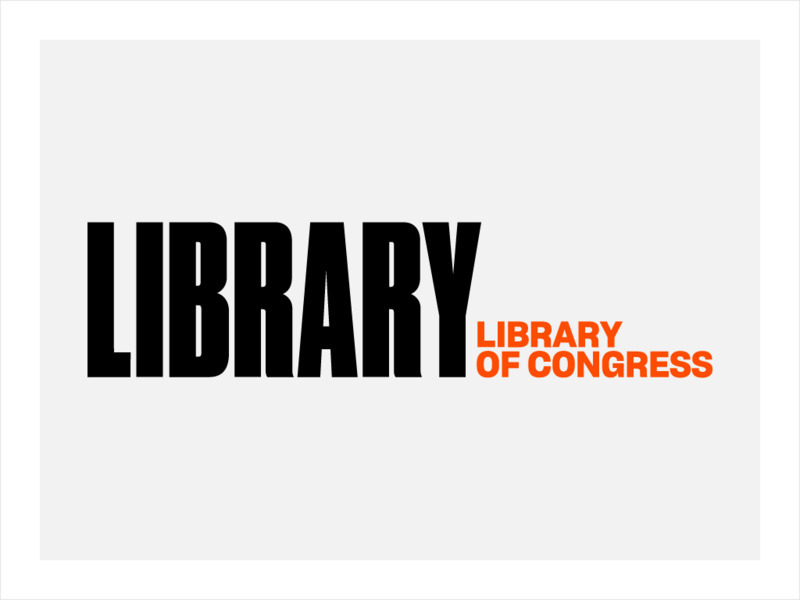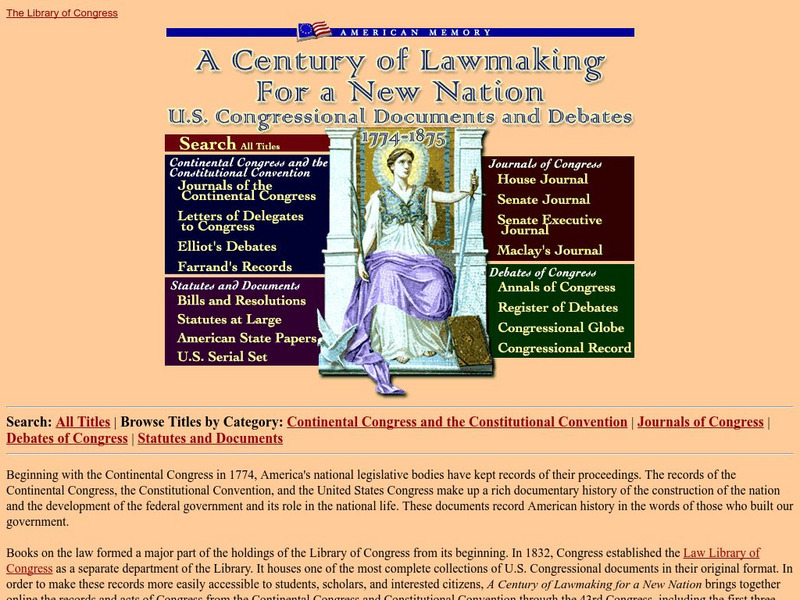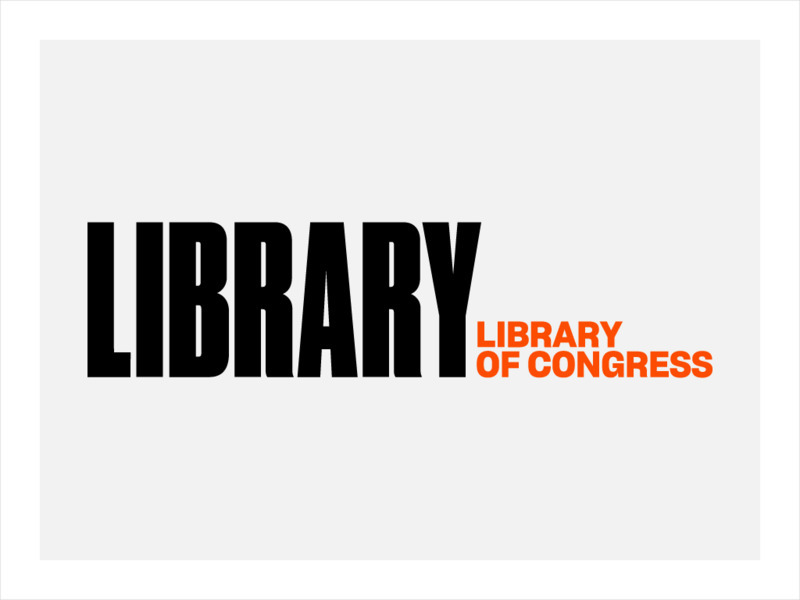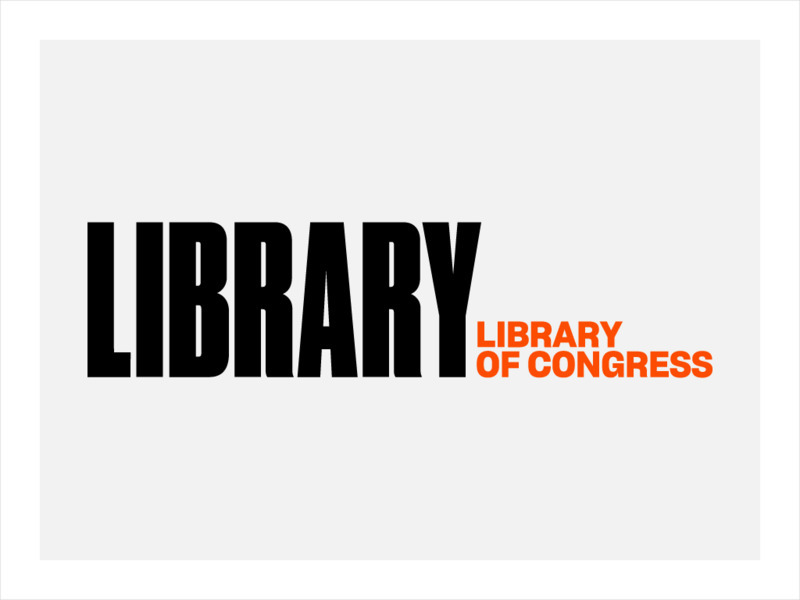San Bernardino Co. Supt. of Schools
Was Julius Caesar a Good Leader for Rome?
Learners consider the various perspectives that different groups in Roman society may have had for Julius Caesar, such as Roman soldiers, senators, the working class, and slaves. The primary activity involves a reading of Caesar's...
Bismarck Public Schools
Chapter 9 Review WKST
Here is a traditional multiple-choice, true/false, and fill-in-the-blank assessment on the presidency of James Monroe in the United States. It was designed to supplement a particular textbook chapter, but could be used to assess learning...
Beacon Learning Center
Growth of a Revolution-The Industrial Revolution
How did changes of the agricultural revolution in eighteenth century Great Britain influence the Industrial Revolution that followed? How were inventions and processes of the Industrial Revolution interrelated? This resource includes a...
Curated OER
The First Emperor Shi Huangdi
Your young historians will have the opportunity to practice their reading comprehension skills with this straightforward lesson on Shi Huangdi, the first emperor of China. Class members read through a reproduced textbook chapter on the...
PBS
Shakespeare & The Renaissance: Activity Ideas
Looking for ways to implement the words and works of William Shakespeare into your curriculum? This list of activity ideas is a great starting point, as it covers a wide range of grade levels and a wealth of online references to explore.
California Academy of Science
Guess That Spice
From medical treatments to cooking, people have been using herbs and spices for thousands of years. Perform a blind smell test of household herbs and spices to engage students in learning about ancient spice trading. Research the history...
Curated OER
The Progressive Era: Muckrakers Grade 8
As you explore an excerpt from Upton Sinclair's The Jungle with your class, discuss how his descriptions of the meat-packing industry caught the public's attention and helped to promote change in the Progressive Era.
National Endowment for the Humanities
Background on the Patriot Attitude toward the Monarch
Learners explain the Patriot attitude toward the British monarchy, which helps them embrace the Founders' reluctance to have a strong executive under the Articles of Confederation as well as their desire to build in checks of executive...
Curated OER
Cartoons for the Classroom: A Parody of Broken Promises
Parodies of political figures are the lifeblood of the editorial cartoons in a free press. North Korea's nuclear threat provides young political scientists an opportunity to hone their critical thinking skills as they analyze a cartoon...
Curated OER
Causes of the Civil War: Missouri Compromise, Compromise of 1850 and Kansas Nebraska Act
How did the Missouri Compromise, the Compromise of 1850, and the Kansas-Nebraska Act contribute to the growing tensions that led to the Civil war? To better understand the events that led to the Civil War, young historians engage in a...
Curated OER
Abraham Lincoln and the Five-Dollar Note
Young scholars study Presidential history by researching Abraham Lincoln. In this U.S. history lesson, students discuss the changes in the 5 dollar bill and create a timeline of Abraham Lincoln's life. Young scholars complete a puzzle...
US Mint
The Growth of a Nation
Young historians explore the identity of the early United States in this four-part instructional activity series. Working in groups of three, students research the political, economic, and cultural atmosphere of each member of the...
Curated OER
Rudyard Kipling's "Rikki-Tikki-Tavi": Mixing Fact and Fiction
"Rikki-Tikki-Tavi," from The Jungle Book, offers young readers a chance to examine how Rudyard Kipling uses setting and personification to bring to life the brave mongoose who battles cobras to protect his family. Class members explore...
National Endowment for the Humanities
Lesson 2: Chief Executives Compared: The Federalist Papers
Fix the Articles of Confederation or develop a new constitution? That was the question facing the Founding Fathers. Several of those in favor of a new constitution published a series of essays, collected in the Federalist Papers, urging...
Library of Congress
Loc: Primary Sources by State
An interactive map to search for extensive collections of primary sources for each of the United States.
Library of Congress
Loc: American Memory: A Century of Law Making for a New Nation
This site provides a collection of U.S. Congressional documents and debates from 1774 to 1873.
Library of Congress
Loc: For Teachers: Classroom Materials Using Primary Sources
This excellent teacher resource features lessons that use primary source documents in an engaging way. Included are lesson plans created by teachers, themed resources, primary source sets, presentations and activities, and collections...
Library of Congress
Loc: Teachers: Personal Stories and Primary Sources
Young scholars will explore the value of personal stories and first-hand accounts when exploring history, in this case, the events of the early twentieth century, which included World War I and the Great Depression. Through this...
Library of Congress
Loc: Policies and Problems of the Confederation Government
This teacher resource includes imagesand historical documents, alllowing readers to trace the creation of our government from the Continental Congress through the Articles of Confederation. An overview helps to clarify the policies and...
Indiana University
The Center on Congress: Congressional Moments: Primary Sources Gallery
View a wide variety of primary source materials that relate to these six topics: Child Labor, Women's Suffrage, Civil Rights, National Park Service, Securities and Exchange Commission, and The Marshall Plan. Transcripts are available for...
Georgia Department of Education
Ga Virtual Learning: American Government: The Legislative Branch
Comprehensive learning module with multi-media resources on the Legislative Branch of the American Government.
Scholastic
Scholastic: News Writing With Scholastic Editors
An excellent site for learning about news writing. This site is an in-depth workshop that takes you through the news writing process step by step by providing examples and tips.
iCivics
I Civics: Three Branches
A web quest looking at how a law gets passed as it moves through the three branches of the United States government: executive, legislative, and judicial. Each page has a question to answer, and a link to a site with information specific...
iCivics
I Civics: Games: Lawcraft
Interactive game that takes the student through the law-making process. Pick a member of Congress and an issue, then see what is necessary to get the bill passed and made into law.







